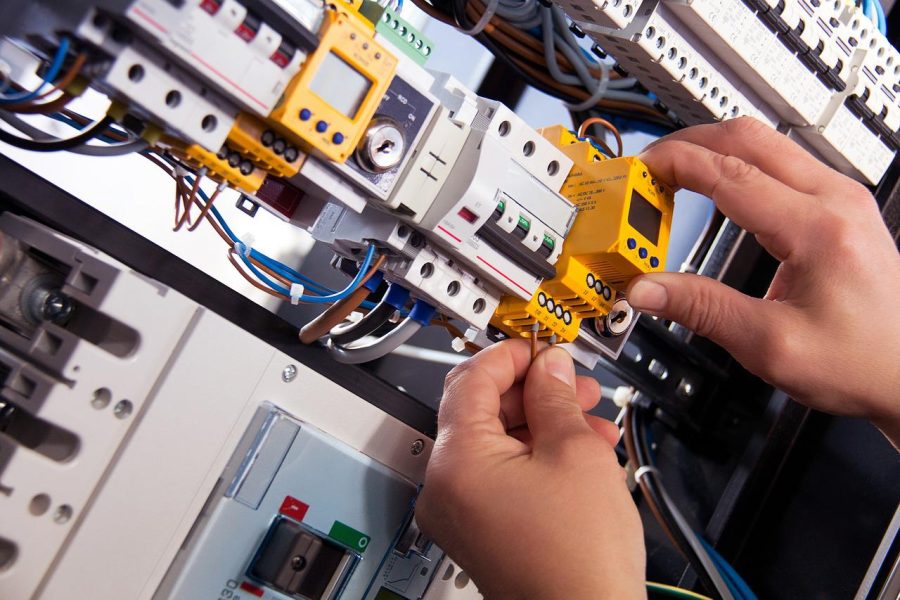What is an Electrical Installation Condition Report (EICR)?
Meaning of EICR
The EICR report, which is known as periodic inspection report, is also called Homebuyers Test or a Landlord Safety Test by customers. The EICR helps to ensure the condition as well as the safety of the wiring in the properties. In the event that there are faults, the EICR will detect them.
Do you need an EICR?
There is currently no law requiring an EICR to be performed on the property. However, the existing Wiring Regulations (BS7671) state that you should keep your electrical equipment in perfect working condition and make sure the equipment is safe. Be it a commercial, home or properties rented out by you; it is strongly recommended that you perform a periodic inspection. It’s better to have an EICR Certificate than running the risk of something happening if you don’t get one.
Note: in the event that you rent a property out and the tenant of yours gets electrocuted because of unsafe electrical installation, you will be brought to justice. In any way, the claim that you did not know about the state of the installation in your property is not an acceptable defence.
The issue of insurance
Numerous insurers need a Certificate of Electrical Condition Report prior to offering cover. Will you feel good when you are brought to court for the electrocuting of an employee or a client, and the insurer tells you sorry you are not insured & that you are going to bear the costs?
How frequently should I carry out an EICR?
As stated before, the frequency of electrical tests depends on various factors. Listed below are the frequencies recommended:
- Homeowners: It is recommended that Private Domestic Installations should be tested once in ten years or at the change of occupancy. In the event that you have a swimming pool, then it requires testing once in a year.
- Tenanted Properties: It is recommended that Rented Domestic Installations should be tested once in five years or change of occupancy. PAT testing is recommended to be done annually.
- Businesses: It is recommended that Commercial Installations should undergo testing once in five years or at the change of occupancy.
The costs of an EICR
Although the Wiring Regulations (18th Edition) of the British Standard (BS7671) offers guidance regarding testing as well as sample testing, however, it is worth bearing in mind that the EICR costs can be based on some few factors, such as the size of the property & the electrical installation’s age. Properties that are older, as well as properties with electrical installations that are outdated, can be more costly if the test takes much time, & sometimes it takes more time to locate as well as identify every circuit before starting the test. Prices can also vary between regions.
The price of the EICR checks can also depend on contractors & the size of the property. Some contractors may offer their prices per circuit; a package price for the whole property may be offered by other electrical contractors. It is vital to discuss things with the electrical contractor & know the number of circuits they want to check, especially in the event that the property is a bit extensive. Testing a small sample size (10 per cent) of circuits would be inexpensive, but will not be as reliable & accurate as testing a larger number (75-100 per cent) of circuits in a property that is larger.
The extent of the electrical inspection is another factor. Further investigation, as well as remedial work, can indeed incur higher costs.
A Domestic Electrical Condition Report price ranges from 180 Euro plus vat for up to 5 circuits. Added circuits are priced at 20 Euro plus vat/circuit. It will take electrical workers of about 4 hours to complete property of 3 bedrooms.
Report on electrical inspection
To fully test & inspect the wiring and electrical accessories, consumer unit the EICR will:
- Identify the competence of earthing or bonding.
- Reveal any general wear & tear.
- Identify any possible fire hazards as well as electrical shock risks.
- Reveal any faulty electrical fittings as well as accessories.
- Reveal all the live wires that are exposed, which could cause injury or fire.
The EICR report must be done by fully certified and professional electricians or engineers. What qualifies an electrician to do the report is a significant amount of extra training & experience compared to ordinary electrician. This qualification allows an electrician contractor to issue the electrical safety certificate (installation certificate).
Stay safe with an Electrical Inspection Report
If you are worried about the electrical safety in your home or business property, please contact an electrician contractor who is a bona fide member of NICEIC, ELECSA, NAPIT and is endorsed by Trust Mark. Stay safe and make sure you get an electrical safety certificate for the property.
Share It on :





